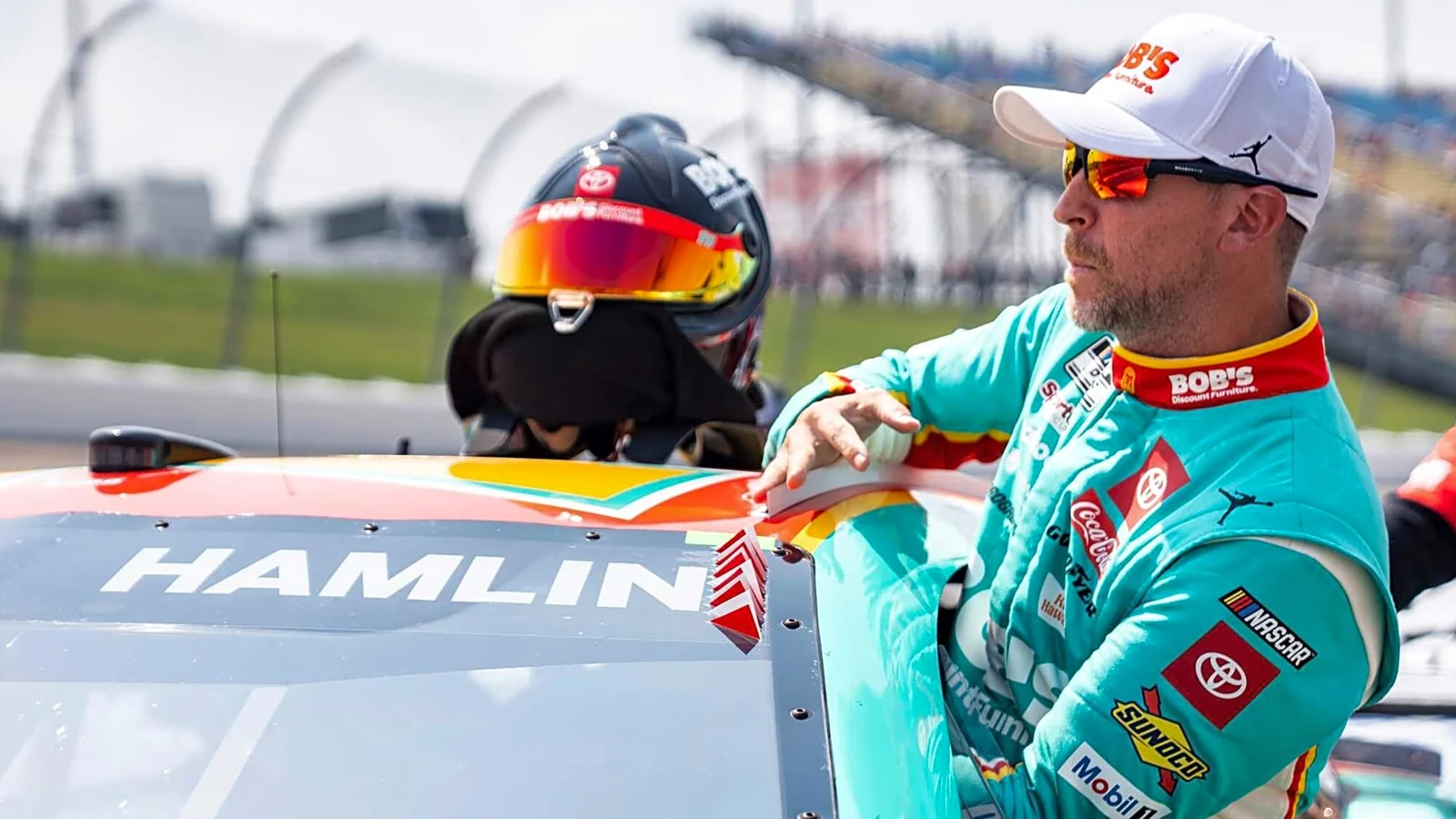Veteran driver Denny Hamlin has openly criticized the length of the NASCAR Cup Series calendar, suggesting that trimming the number of races would help renew fan interest and energy, especially after a well-attended event at Richmond Raceway. The Denny Hamlin NASCAR race schedule opinion centers on the belief that scarcity, rather than volume, could bring a more devoted audience back to the stands and boost the sport’s vibrancy.
Richmond’s Single Race Date Brings Unexpected Benefits
The recent NASCAR Cup Series event at Richmond Raceway drew both strong attendance and attention after Austin Dillon secured a standout win for Richard Childress Racing. Although fans have previously questioned why Richmond hosts only one race per season, Hamlin explained that the shift from two annual events to a single date has created more demand and stronger turnout from fans. Historically, the track’s two-date schedule failed to deliver full stands, as the cost and logistical efforts of attending races likely limited how often fans showed up.
Denny Hamlin, who competes for Joe Gibbs Racing (JGR), elaborated on this dynamic during his Actions Detrimental podcast, describing how consumers facing multiple opportunities often opt out entirely due to conflicts or lack of urgency.
“I mean, let’s be honest, it doesn’t matter what sporting event you go to, it costs money to go. When you have the option to have multiple times to go, what happens usually is you skip the first, ‘I’ll go get the next one.’ Then, something comes up before the next one, you don’t end up going at all.”
—Denny Hamlin, via Actions Detrimental podcast
With only one Cup date currently on the Richmond schedule, Hamlin notes that the event’s exclusivity has created a market attraction based on scarcity—a dynamic that is drawing more committed fans and selling out the stands. He explained his own personal perspective as a sports fan, showing that limited events often motivate people to clear their schedules to attend.

“As a sports person for me, I know when something comes in to town once, that’s my opportunity. Block it off, don’t plan anything else, because I don’t have another option. So, I think that there’s something to that, and it seems like the tracks with one date? It’s working out for them.”
—Denny Hamlin
Hamlin Raises Red Flags Over NASCAR’s Crowded Calendar
Building on his experience at Richmond Raceway, Hamlin underscored his viewpoint that the sport suffers from an overcrowded schedule and oversaturation in the market. The NASCAR Cup Series currently features 36 points-paying contests, plus two exhibition events—a quantity Hamlin believes is excessive for teams and fans alike. He argues that scarcity increases both interest and excitement, whereas too many races can dilute fan enthusiasm and reduce attendance.
“I think it’s another example that we have too many races in our schedule. We’re just over-saturating the market. We’re trying to come up with new tracks and things like that, but it’s just — certainly (there shouldn’t be) 36 or 38 (races). I just think that there’s something to making the people want it, instead of just always giving it to them whenever they want it.”
—Denny Hamlin
Hamlin suggests that streamlining the NASCAR schedule by cutting down on the total number of races could help preserve the sport’s appeal, drive up demand, and make it more likely for races to sell out. He acknowledges that NASCAR’s recent market strategies, which attempt to attract fans with new venues, are not necessarily the solution—pointing out that less can truly be more when it comes to the frequency of major sporting events.
The Emotional Toll of Losing a Race Date
For Hamlin, these opinions come with personal experience. He shared how he felt when Richmond lost one of its coveted NASCAR race dates for the upcoming 2025 season. The city—along with others like Greensboro and Indianapolis—ranks high among places he values both as a competitor and as a person who cherishes tradition and fan connections. The reduction in scheduled events struck a chord, leaving him both saddened by the loss and fascinated by the improved energy at the remaining single event.
“It broke my heart that they lost one of their dates. (But Saturday) was a good crowd turn out. It’s so interesting, because Richmond is always one of our top-five cities that people watch us. It’s one of the higher-rated cities. It’s always like, Greensboro, Richmond, Indy — something like that, is our kind of our top five. But they didn’t come to the track.”
—Denny Hamlin
Hamlin’s reflection highlights a tension that resonates throughout the industry: while tradition is valued and the reduction of race weekends can feel like a loss to the communities involved, there is an undeniable boost in excitement and fan turnout when a race comes around just once per year. For cities like Richmond, the shift appears to have paid off, at least when it comes to attendance and atmosphere. Hamlin directly connects these turnout patterns to the exclusive nature of the event and believes this could be a valuable lesson for NASCAR leadership.
Wider Implications for NASCAR’s Future
Hamlin’s critique of the current schedule is not just about logistics or personal disappointment—it reflects deep concerns about the future direction of the sport. The Cup Series’ extensive calendar, according to Hamlin and many in the racing community, stretches not only fan attention but also the resources and stamina of the teams themselves. Reducing the number of races could benefit all parties, restoring a sense of excitement for every race weekend and easing operational demands on everyone involved, from teams to the organizers.
However, achieving the kind of schedule reduction Hamlin envisions is complicated by existing media deals. NASCAR is bound by a seven-year contract with major broadcasters, who have significant authority in shaping the structure and number of races each season. These negotiations make it difficult to implement dramatic calendar changes in the near term, despite growing sentiment among drivers and fans that less is indeed more.
Hamlin’s pointed input joins a chorus of critical voices within the sport—including past champions like Mark Martin—who argue that the current approach risks alienating classic fans and diminishing the unique status of iconic venues such as Greensboro, Richmond, and Indy. Hamlin’s Denny Hamlin NASCAR race schedule opinion is being echoed in key fan communities that recall the thrill of rare local races and packed stands.
The conversation over how many races best serve NASCAR’s future will likely continue, especially as the Cup Series balances commercial interests with the emotional pulse of its most passionate supporters. For now, the Richmond race provides a revealing example of how exclusivity and careful scheduling can bring renewed excitement, restoring some of the magic that fans and legends like Denny Hamlin remember from NASCAR’s past.
